 |
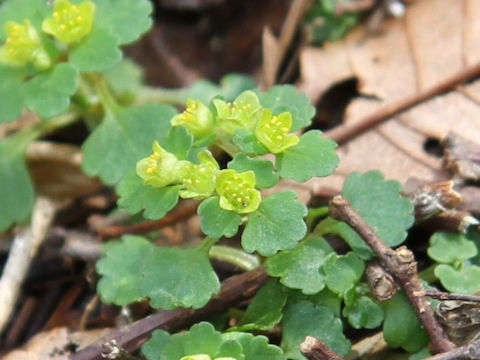

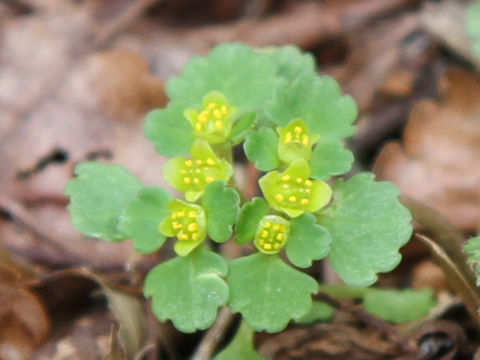

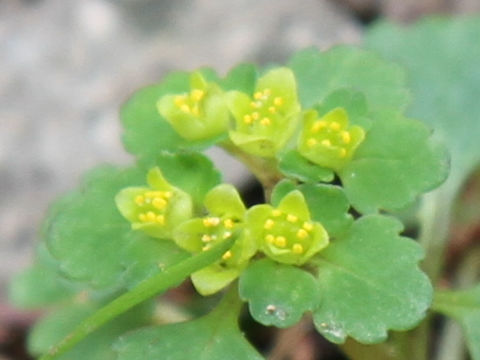

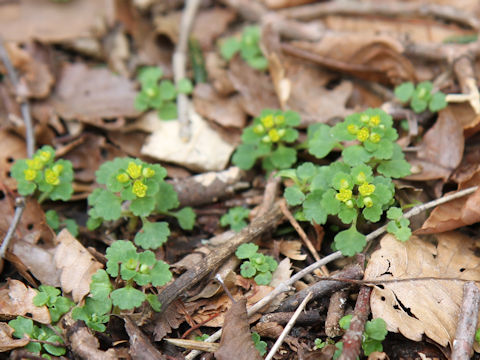

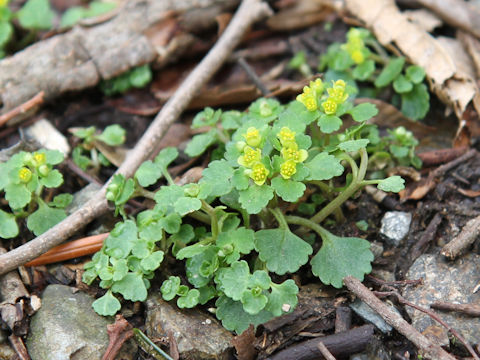

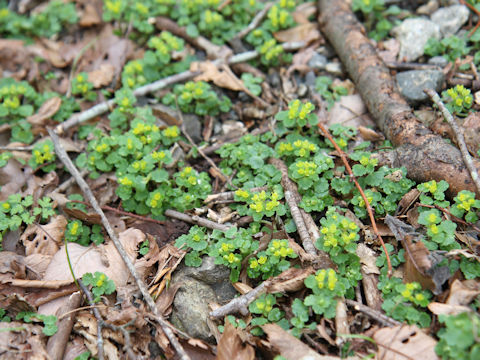

|

|
íªÌ{BAknûì©çCnûɪzµÄ¢Ü·Bò¢ÌÑàɶ¦A³ÍR`PTZ`ÉÈèÜ·BnÊÌÉo}ð¾µAæ[Éìèð¯ÄLªèÜ·BstÍQ`RÎ èA~`ÅÛ¢ª èÜ·BR©çS²ëAs¸ÉW©ÎFÌÔðÂ穹ܷBÔÉÍÔÙªÈASÂ̼§µ½äÓЪ èÜ·BYµ×ÍWÂAäÞÍÎFܽͩFÅ·BÊÀÍûÊÅAÎFܽͩFAQôµÜ·B
|

|
LmV^ÈlRm\E®Ì½NÅAw¼Í Chrysosplenium maximowicziiBp¼Í èܹñB
|

|
"Mukago-nekonome-so" (Chrysosplenium maximowiczii) belongs to Saxifragaceae (the Saxifrage family). It is a perennial herb that is native form southern Tohoku district to Tokai district of Honshu in Japan. This herb grows in forests along mountain streams, and it can reach 3-15 cm in height. It bears basal stolons under grounds and spreads by terminal propagules. The cauline leaves are 2-3 pairs and ovate-round with round toothed edges. The several, pale yellowish-green flowers bloom atop of stems from March to April. The corolla is non-petaled and has erect four-lobate sepal. It has eight stamens with greenish-white or yellow-white anthers. The capsules are greenish-white or yellow-white, and bilobate.
|

|
§¢í«sumxvÉÄA2014N0329úBeB
|





